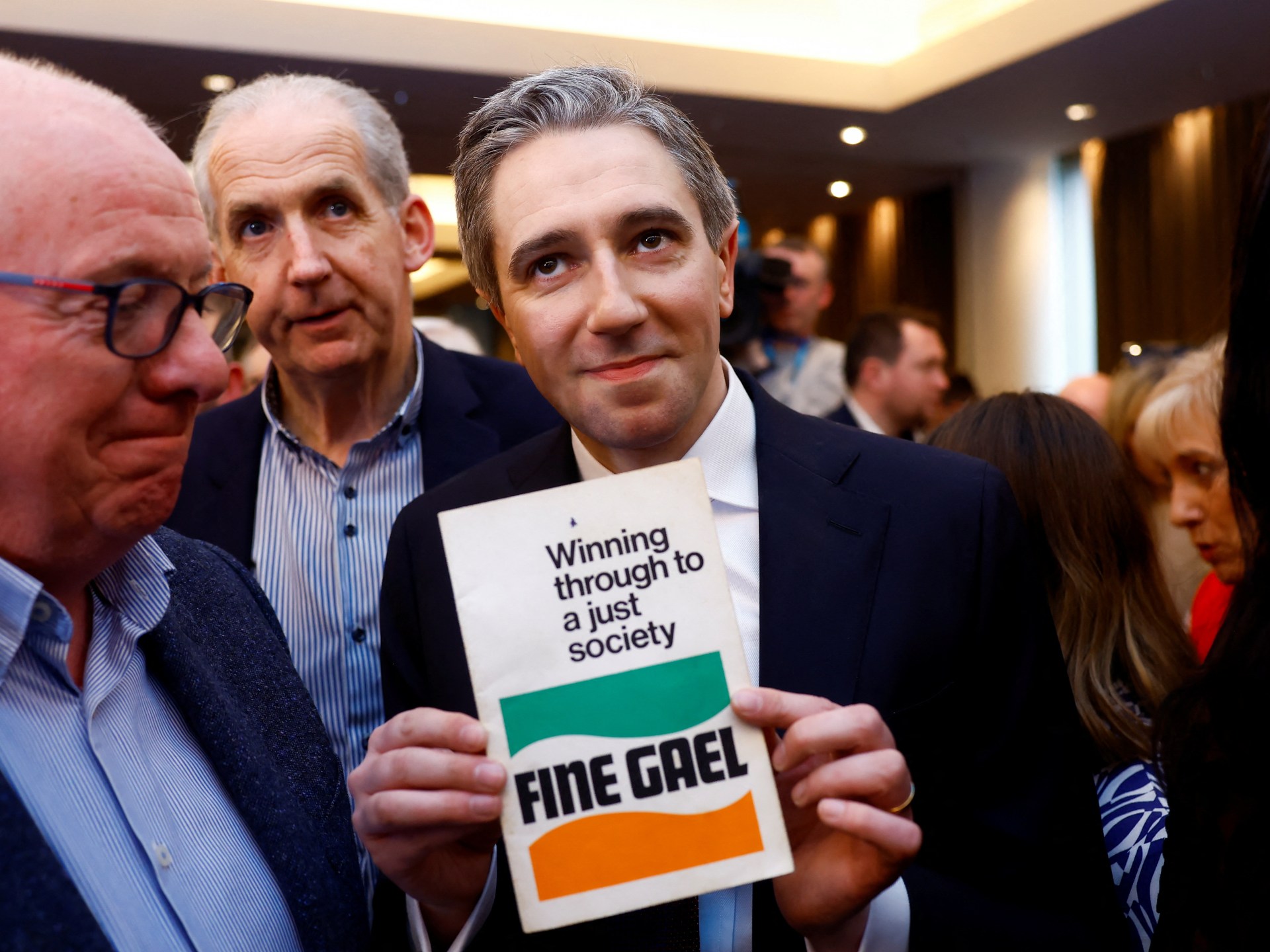Simon Harris is set to become Ireland’s youngest prime minister after he was appointed as the new leader of the governing Fine Gael party.
The 37-year-old said it was the “absolute honour of my life” to be appointed party leader on Sunday, replacing Leo Varadkar, who resigned unexpectedly on Wednesday, saying the party would be better governed under another leader.
Harris will be voted in as the Republic of Ireland’s youngest-ever prime minister – known as the taoiseach – when the country’s parliament or Oireachtas next sits on April 9 due to support from Fine Gael’s coalition partners.
“I think he’s done a really good job in securing the leadership in as comprehensive a way as he has,” Fine Gael deputy leader Simon Coveney said.
Harris told the centre-right party’s members that he would repay their faith with “hard work, with blood, sweat and tears, day in and day out with responsibility, with humility and with civility”.
Setting out his priorities, Harris insisted that Fine Gael “stands for law and order” and told members he wanted to “take our flag back” from nationalists, to loud cheers.
He also said that he would pursue a “more planned and sustainable” immigration policy, following increased tension over the issue, and that he would “fight against the dangers of populism”.
On the international front, he called for an immediate ceasefire in Gaza and condemned Russia’s “horrific illegal invasion of Ukraine”.
He will have no more than a year to save the coalition from defeat at parliamentary elections.
In the last three years, polls have put Sinn Fein, a left-wing party that backs unification with Northern Ireland, a British province, as the preferred choice to lead the next government.
However, two more polls on Sunday confirmed a recent trend of support for Sinn Fein dropping off highs of 12-18 months ago.
A Business Post/Red C poll conducted before Varadkar’s departure as taoiseach put Sinn Fein’s lead over Fine Gael at six percentage points, while an Irish Independent/Ireland Thinks survey showed a five-point edge.
Harris, formerly a minister for education, research and science, is best known for taking responsibility for Ireland’s COVID-19 response.
He said recently that he became involved in politics as an “opinionated, moody teenager” bothered by the lack of educational supports for his autistic brother.
Although he has spent most of his adult life in parliament, Harris has cast himself as an “accidental politician”.
His online presence led one opponent in the Oireachtas to dub Harris the “TikTok taoiseach”.
While the economy grew strongly under Varadkar, successive governments, of which Harris has been part, have struggled to tackle a decade-long housing crisis and, more recently, the pressure from record numbers of asylum seekers and refugees.
Inheriting a three-party coalition government working off an agreed policy programme will not give the incoming leader much room for major new policy initiatives.
Before Harris, Varadkar was the country’s youngest-ever leader when first elected at age 38, as well as Ireland’s first openly gay prime minister.
His mother is Irish and his father is Indian, which also made Varadkar Ireland’s first biracial taoiseach.
Varadkar, 45, has had two spells as taoiseach — between 2017 and 2020, and again since December 2022 as part of a job-share with Micheal Martin, head of coalition partner Fianna Fail.
